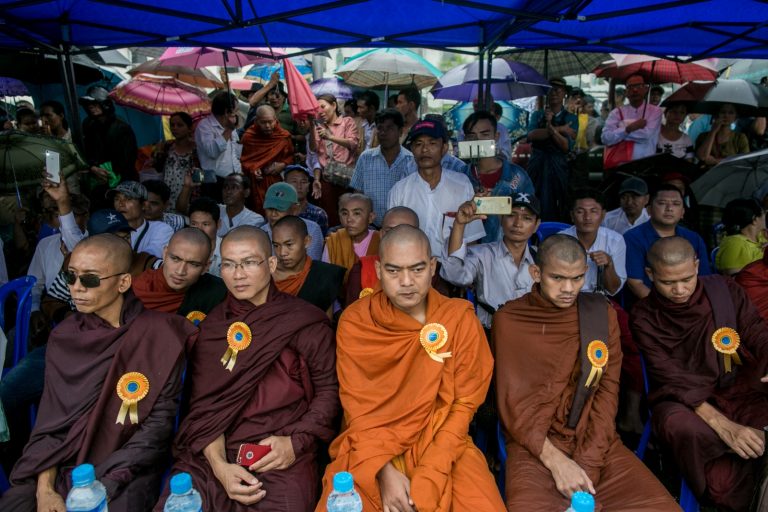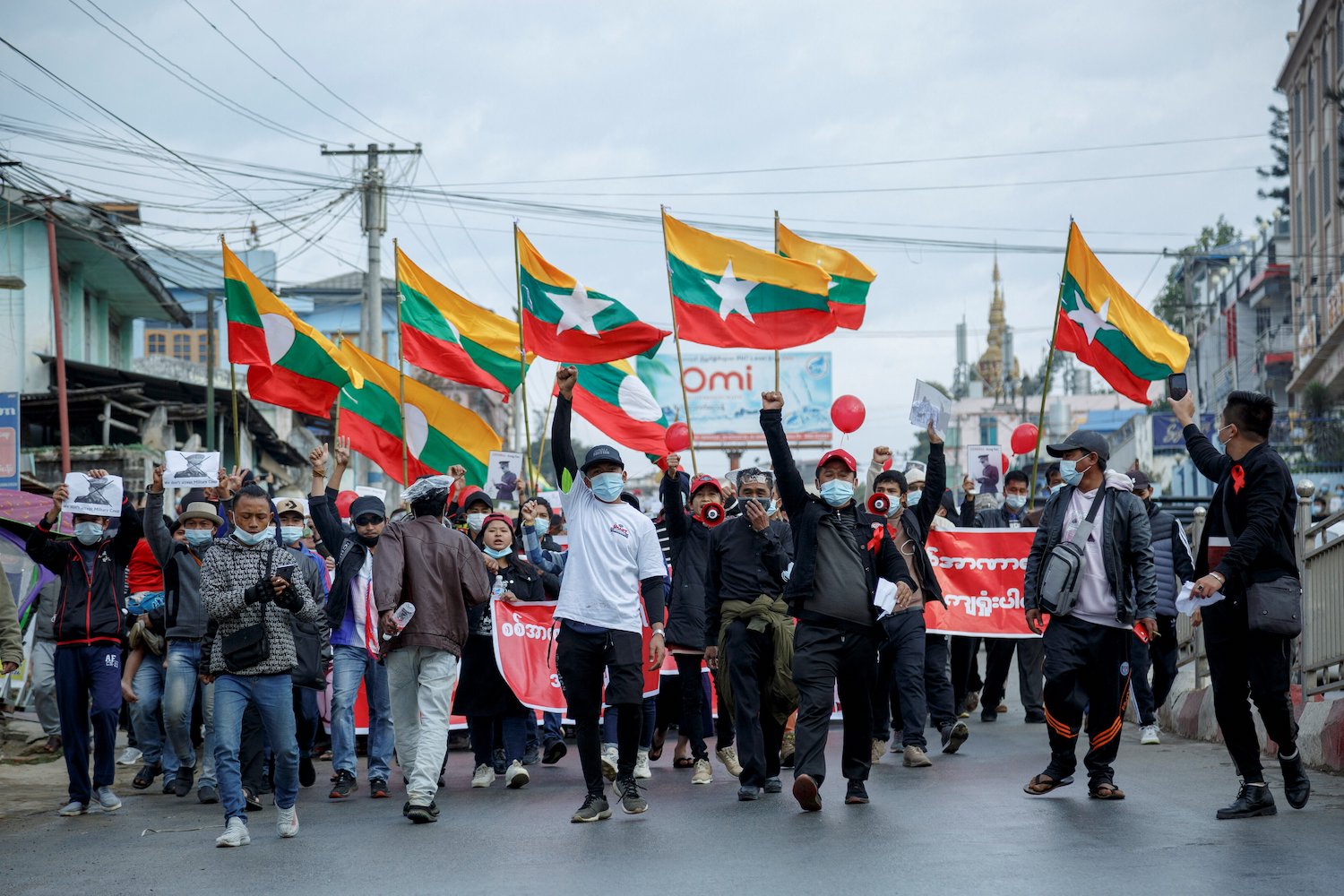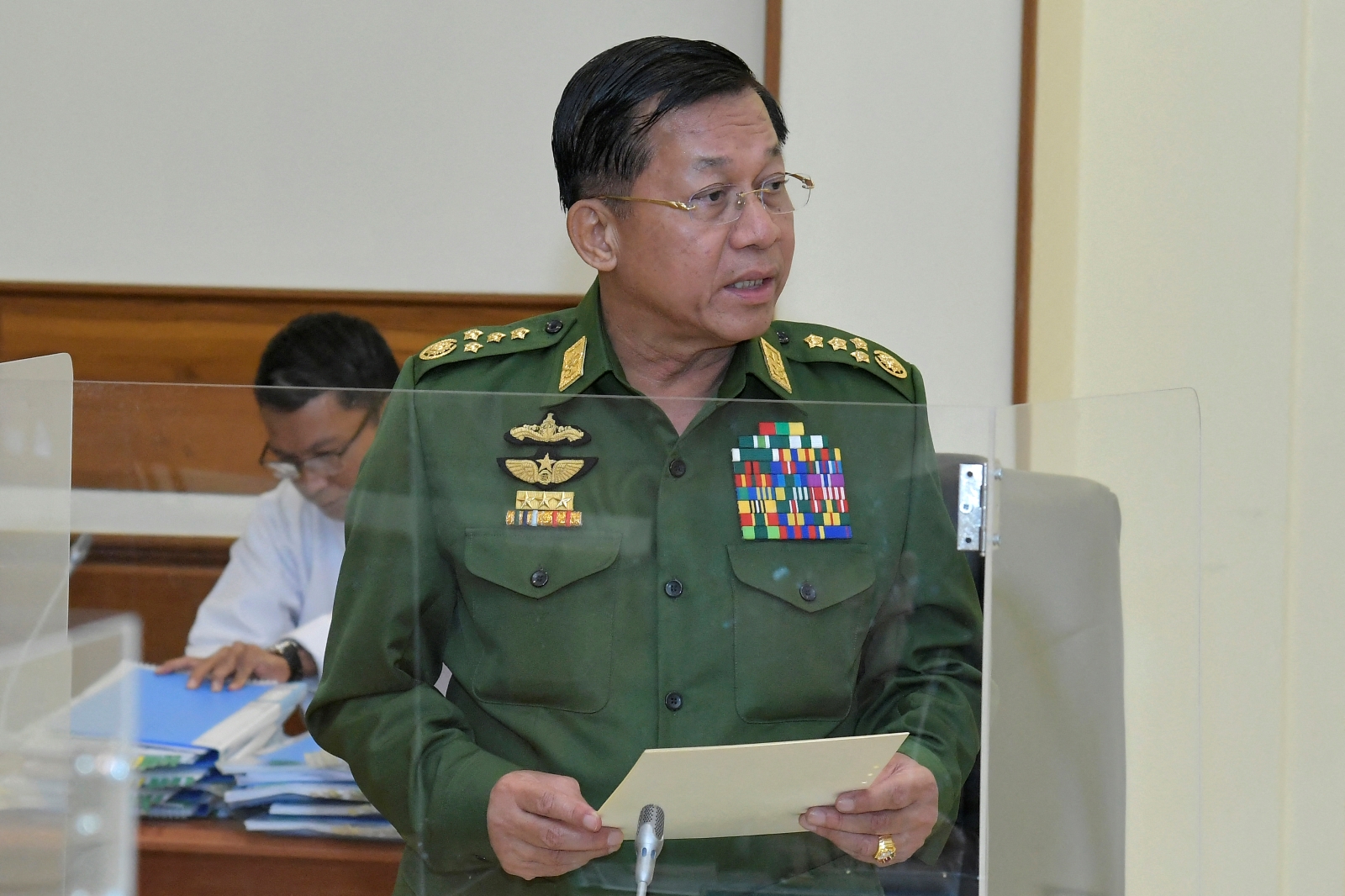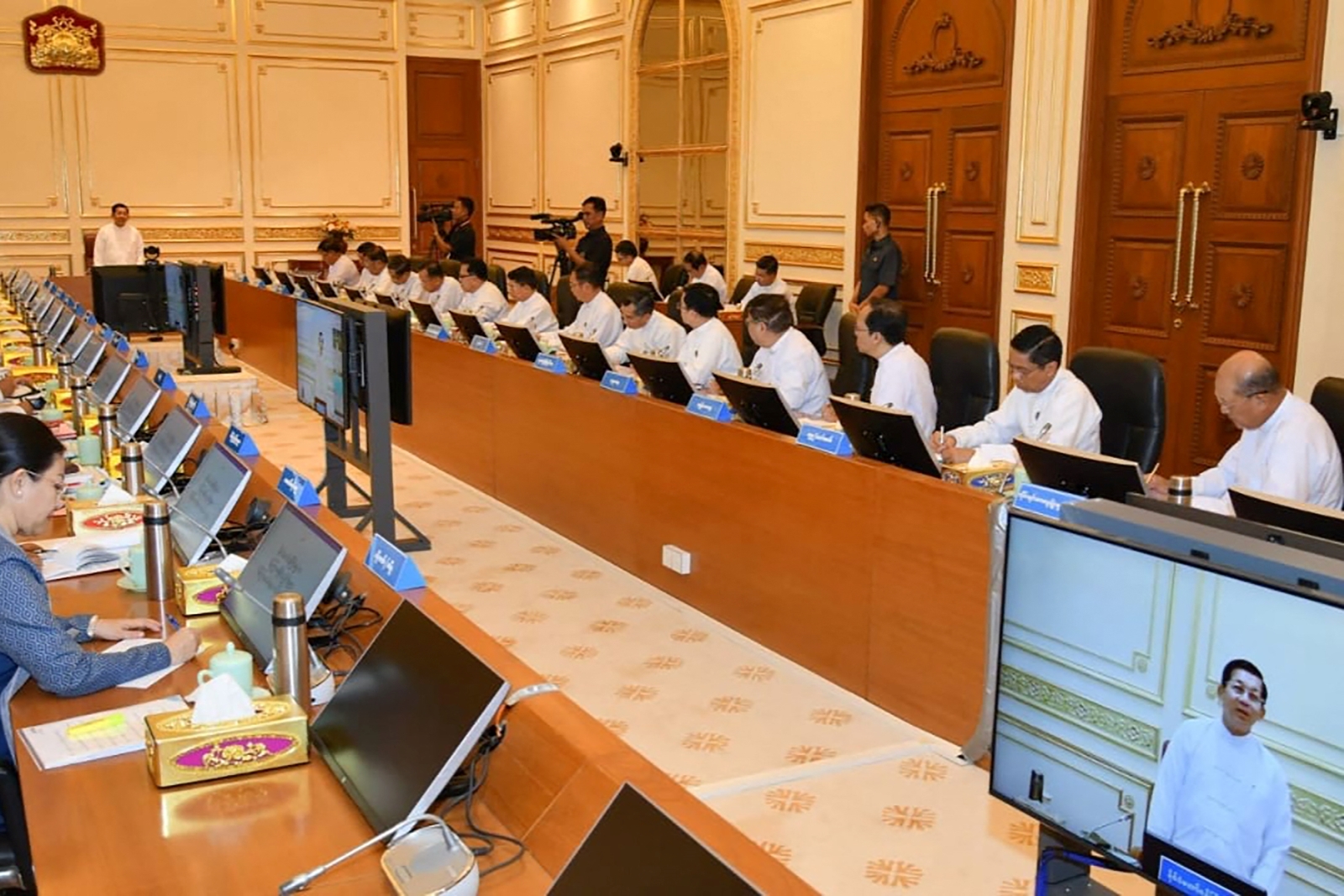The recently-formed National Development Party is reaching for the sky in the November 8 election, hoping to be the phoenix that rises from the ashes of a routed Union Solidarity and Development Party.

Nay Zin Latt, founder of the National Development Party. (Frontier)
If the ruling party remains a force in politics, the NDP’s long-term aim is closer to the ground. It wants to be the third force in Myanmar politics and provide a bridge between the USDP and the National League for Democracy.
The NDP’s founder, U Nay Zin Latt, says it will mainly appeal to young, educated voters. “Our appeal is to the younger generation and to provide them with a vehicle for their political potential,” he told Frontier.
“The National Development Party stands for national interest and national reconciliation, not nationalism,” U Nay Zin Latt said.
The NDP hopes to win enough seats to play a significant subsidiary role in parliament and set an example for a fresh relationship between the executive branch of government and the legislature.
Support more independent journalism like this. Sign up to be a Frontier member.
Many of the party’s candidates are academics, teachers and business people. They are contesting 357 seats in hluttaws throughout the country, including nearly 100 in the upper and lower houses of the Union parliament, concentrating on about 30 seats in Yangon and Ayeyarwady regions and two or three other regions where the party believes it can win. The NDP is deliberately not contesting seats in ethnic areas.
“Most agree that reform and democracy is needed, but there is a lack of trust in our political system,” said U Nay Zin Latt. “We need to promote understanding and build trust … especially towards the military,” said the former Tatmadaw major.
He believes that in the long-term the army should not be involved in politics and during the current transition period its role should be gradually reduced – as happened in Indonesia and South Korea.
U Nay Zin Latt said the 2008 Constitution needs amending, but only when appropriate and in keeping with the national interest. Any changes should not put the country at risk, he said. He was reluctant to discuss the peace process and the issues of federalism and the devolution of power over the country’s resources.
“All this depends on mutual trust,” he said. “At present they [the military and the democrats] don’t understand each other; and they don’t understand the transition process: Their main concern is control – and the lack of a political pact is delaying the transition.”
“We will have to work together with all parties and all leaders,” he said. A presidential adviser until the NDP was formed, he insisted not being predisposed to support any particular party. “We’ll choose to support who ever is right at the time, who is right for the country, and who has the best solution at the time,” he said.
U Nay Zin Latt was originally planning to wait until after the 2015 elections to launch the NDP. But the “bitter battle between the legislature and the executive has become so intense and been so detrimental to the functioning of the current government” that it was crucial to form the party ahead of the November election and contest as many seats as possible. “We’ll build from our experience this time round,” he said.
The party is the brainchild of U Nay Zin Latt and his colleagues and students at the Center for Strategic and International Studies in Yangon, where he has been teaching for the last few years. “They’ve been studying politics and now want to put into practice some of the ideas they have learned and discussed since they started their studies,” he said.
The nucleus of the party is about 400 students and graduates who joined when it was formed. U Nay Zin Latt says membership has grown quickly and exceeds more than 100,000, most of whom are academics and businesspeople, with only a few former Tatmadaw personnel, none of whom were above the rank of colonel.
The average age of NDP members is between 40 and 45, and more than 30 percent are former students. The party’s central executive committee comprises U Nay Zin Latt and four others, none of whom is contesting the election. U Nay Zin Latt neither wants nor expects to be a minister in the next government.
“Our objective is to develop our country for the sake of the national interest,” he said. “The main aim to avoid friction and conflict, find better solutions and develop the country on a fair and equitable basis.” Sound economic policy, with an emphasis on health and education, are the corner stones of the NDP’s election platform.
“The party’s policy and program is aimed at making life better for farmers and labourers, with a stress on job creation and encouraging entrepreneurs,” he said. Foreign investment is needed, especially for the transfer of technology and management skills. “The aim is to build up the country to be able to compete globally and internationally,” he said. “But we need to find a balance: we cannot refuse foreign investment, but we must also develop local industries.”
On the issue of the ‘cronies’ he was vague. “We don’t want to suppress them; we won’t stop them getting opportunities – but they will have to compete [on a level playing field],” he said.
U Nay Zin Latt is articulate, confident and authoritative. But will he and the NDP be able to convince voters that they are indeed a real third force that is bringing a fresh, independent and innovative approach an already crowded political scene?
U Myat Thu, who teaches at the Yangon School of Political Science, said the NDP’s political credibility is hampered by lacking a high profile and a charismatic leader.
His assessment was echoed by Daw Myat The Thitsar of Enlightened Myanmar Research, which specialises in studying the country’s political parties.
“People don’t know Nay Zin Latt nor his party, and without a well-known and respected political leader, they won’t fare well at the polls”, said Daw Myat The Thitsar.
U Nay Zin Latt knows the party faces an uphill battle. In an attempt to overcome its challenges, the party has chosen candidates with local roots and connections to try to boost their standing in their constituencies. The former financial analyst with consultancy Thura Swiss, U Thet Tun, is standing for election in Dawei, the home town of his wife’s family, in the hope of increases his chances.
Another constraint is limited campaign funds. “We have limited resources and no major benefactor,” U Nay Zin Latt said. “The candidates are expected to share the financing of their election campaign,” he said.
The NDP has been widely dismissed by academics, diplomats, civil society activists and journals as a surrogate for the Tatmadaw and the USDP. “Nay Zin Latt’s party is a proxy party for the Thein Sein group,” said U Myo Win, the executive director of Smile Education and Development Foundation. “It’s too small to compete with the USDP and the NLD and become a significant player in parliament after the elections.”
U Nay Zin Latt strongly denies the proxy allegation. “U Thein Sein, and the Commander-in-Chief, Senior General Min Aung Hlaing, had nothing to do with the creation of the party,” he said. “It was the students who took the initiative.”
But sources within the ruling USDP suggest otherwise. President U Thein Sein considered joining the NDP earlier this year amid a deteriorating relationship with parliamentary Speaker, Thura U Shwe Mann, according to sources close to the President’s Office. But U Thein Sein thought better of it and the President’s Office issued a statement distancing himself from his former adviser’s party.






